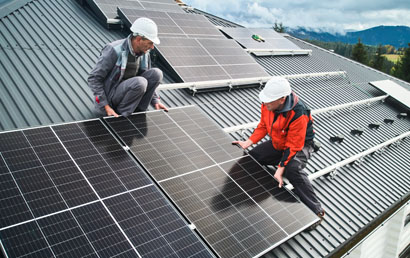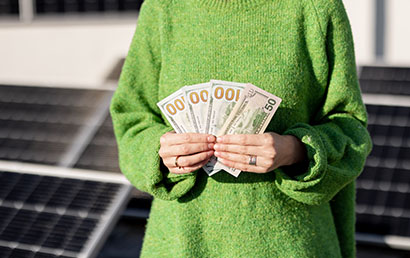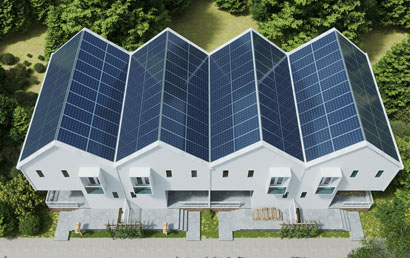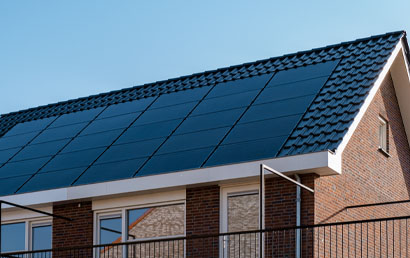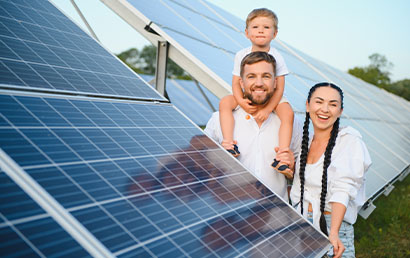Introduction
The increasing awareness of environmental issues and the rising cost of traditional energy sources have driven many homeowners to explore alternative and sustainable solutions. Solar panels, once considered a futuristic concept, are now a practical and accessible option for residential energy production. Before jumping on the solar bandwagon, however, it's crucial to assess whether your roof is ready for the installation of solar panels. In this article, we'll delve into the key factors to consider when determining the readiness of your roof for solar panels.
Roof age and Condition
Research and compare the warranties of your roof and solar panels. It's crucial to ensure compatibility and consider upgrading your roof if necessary.
Inspect your roof for signs of wear and tear, including damaged shingles, leaks, or structural issues. If your roof is nearing the end of its lifespan or requires extensive repairs, it might be prudent to address these issues before investing in solar panels.
Roof Orientation and Sun Exposure:
The effectiveness of solar panels is highly dependent on the amount of sunlight they receive. Assess the orientation of your roof to determine its sun exposure throughout the day. Ideally, a south-facing roof receives the most sunlight, but east and west-facing roofs can also be viable options.
Consider any obstructions, such as tall trees or nearby buildings, that may cast shadows on your roof during peak sunlight hours. Solar panels operate optimally when exposed to direct sunlight, so minimizing shading is crucial for maximizing energy production.
Roof Pitch & Angle:
The pitch and angle of your roof also play a significant role in the efficiency of solar panels. The ideal angle for solar panels is often the angle of your roof itself, but adjustments can be made for roofs with different pitches. While a flat roof is suitable for solar installations, additional racking may be required to achieve the optimal tilt.
Consult with a solar professional to determine the best angle for your specific roof and location. Some modern solar technologies are designed to be adjustable, allowing for optimization based on your roof's unique characteristics.
Roof Load-Bearing Capacity:
Solar panels add a significant load to your roof, and it's crucial to ensure that your roof can bear the additional weight. Hire a structural engineer to assess the load-bearing capacity of your roof and provide recommendations for any necessary reinforcements. This step is essential for the safety and stability of both your roof and the solar panel system.
Local Regulations and Permits:
Before installing solar panels, familiarize yourself with local regulations and obtain the necessary permits. Some areas may have restrictions on the type, size, or placement of solar panel installations. Compliance with local regulations ensures a smooth and legal installation process, avoiding potential issues down the line.
Roof Warranty Considerations:
Installing solar panels on your roof may impact its warranty, so it's important to review the terms and conditions of your roofing warranty. Some roofing warranties may be voided if solar panels are installed, while others may have specific provisions or requirements. Contact your roofing manufacturer or installer to discuss the implications of installing solar panels on your existing roof warranty.
Financial Considerations:
Assessing the readiness of your roof for solar panels also involves considering the financial aspects of the investment. While solar panels can lead to long-term savings on energy bills and even generate income through incentives and net metering programs, the upfront costs can be substantial.
Explore financing options, tax incentives, and rebates available in your area to make solar panel installation more financially viable. Additionally, calculate the return on investment (ROI) over the lifespan of the solar panels to gauge the long-term economic benefits.>
Conclusion
Transitioning to solar energy is a commendable and environmentally conscious decision, but it requires careful consideration of your roof's readiness for the installation of solar panels. From assessing the age and condition of your roof to considering its orientation, pitch, and load-bearing capacity, a thorough evaluation is essential for a successful and sustainable solar panel installation.
Before taking the plunge, consult with solar professionals, structural engineers, and local authorities to ensure compliance with regulations and optimize the performance of your solar energy system. With a well-prepared roof, you can harness the power of the sun and contribute to a greener and more sustainable future.


